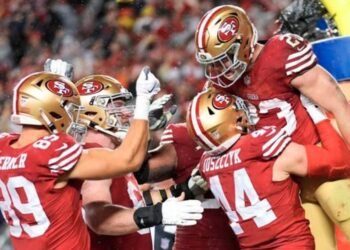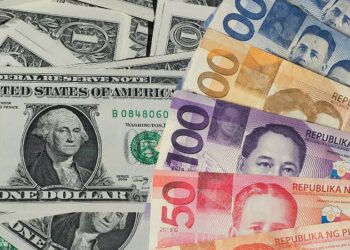In a courtroom spectacle unprecedented in American political history, former U.S. President Donald Trump faces a landmark criminal trial, casting a long shadow over his current presidential campaign. At the heart of the case is Michael Cohen, Trump’s estranged former lawyer and self-proclaimed fixer, whose upcoming testimony is poised to be a pivotal moment in the proceedings. As the drama unfolds, tensions run high, with implications beyond the courtroom walls.
Donald Trump, the 77-year-old former president and Republican presidential candidate, stands accused in the Manhattan District Attorney Alvin Bragg’s prosecution of falsifying business records 34 times. The charges center on a $130,000 payment to adult film actress Stormy Daniels, which prosecutors argue was a covert effort to silence her allegations of a 2006 sexual encounter with Trump ahead of the 2016 presidential election.
Despite Trump’s vehement denials of the affair and any wrongdoing, the prosecution asserts that this payment was part of a broader attempt to manipulate the electoral process by suppressing potentially damaging revelations. The allegations challenge Trump’s integrity and test the legal boundaries of campaign finance.
Michael Cohen, once a loyal confidant to Trump, claiming he would “take a bullet” for him, has dramatically shifted to a key prosecution witness. His testimony is expected to shed light on the intricacies of the hush money transaction and its subsequent concealment through the Trump family’s real estate business records.
However, Cohen’s credibility is under intense scrutiny, not just from the defense but also from Justice Juan Merchan. Recent incidents, including Cohen’s public outbursts against Trump on social media and a controversial T-shirt depicting Trump behind bars, prompted Merchan to admonish Cohen. The judge urged restraint, stressing the importance of maintaining judicial decorum in such a high-profile case.
Defense Strategy And Cross-Examination Tactics:
Trump’s defense attorney, Todd Blanche, vigorously cross-examined Cohen, aiming to undermine his reliability as a witness. Blanche highlighted Cohen’s past criminal convictions, including lying to Congress, tax evasion, and campaign finance violations, suggesting that Cohen’s testimony could be another maneuver in his pattern of deceit.
The defense also painted Cohen as a profiteer of his association with Trump, citing his lucrative book deals and frequent media appearances as motives for his antagonism toward the former president. This narrative is crucial for the defense, framing Cohen as a disgruntled former employee rather than a credible informant.
Trump’s Public Defense and Legal Challenges:
Despite the confines of a strict gag order imposed by Justice Juan Merchan, which penalizes him $10,000 for each infraction, former President Donald Trump has continued to vocalize his opposition vehemently.
Trump argues that the gag order severely undermines his First Amendment rights, restricting his ability to counteract public allegations against him. He has portrayed the legal constraints as an orchestrated effort to silence him, particularly when his public voice is needed to clarify his stance to the electorate.
In a series of statements delivered to the media, Trump has characterized the trial as a politically motivated assault orchestrated to sabotage his campaign for a second presidential term.
This narrative has resonated strongly among his base, who view the legal actions as a continuation of past persecutions, dubbing the proceedings a “witch hunt.” Conversely, his critics uphold the trial as a vital examination of Trump’s integrity and compliance with the law, asserting that the transparency and outcomes of this trial are pivotal for maintaining public trust in political figures.
The timing of the trial, set against the backdrop of the forthcoming November 5 election where Trump is poised to challenge Democratic incumbent Joe Biden, has thrust these proceedings into the spotlight, magnifying their significance as a bellwether for Trump’s political viability. As the trial intersects with the electoral campaign, it shapes public perception and stakes out a battleground where legal disputes and political campaigns intersect.
As the trial progresses, all eyes are on Michael Cohen, whose forthcoming testimony could potentially sway the case’s outcome.
The anticipation builds around whether his disclosures will reinforce the prosecution’s accusations or lend credence to Trump’s assertions of innocence. The weight of Cohen’s words could tilt the balance, impacting the legal verdict and the public and political ramifications.
This trial transcends the mere specifics of a financial transaction, touching on broader themes of American democracy and the rule of law.
Its outcome could decisively influence Trump’s political destiny and, by extension, the contours of the American political landscape for the foreseeable future. The detailed exploration of these proceedings sheds light on the intricate dynamics, ensuring the public remains well-informed about every development in this unprecedented legal confrontation.







